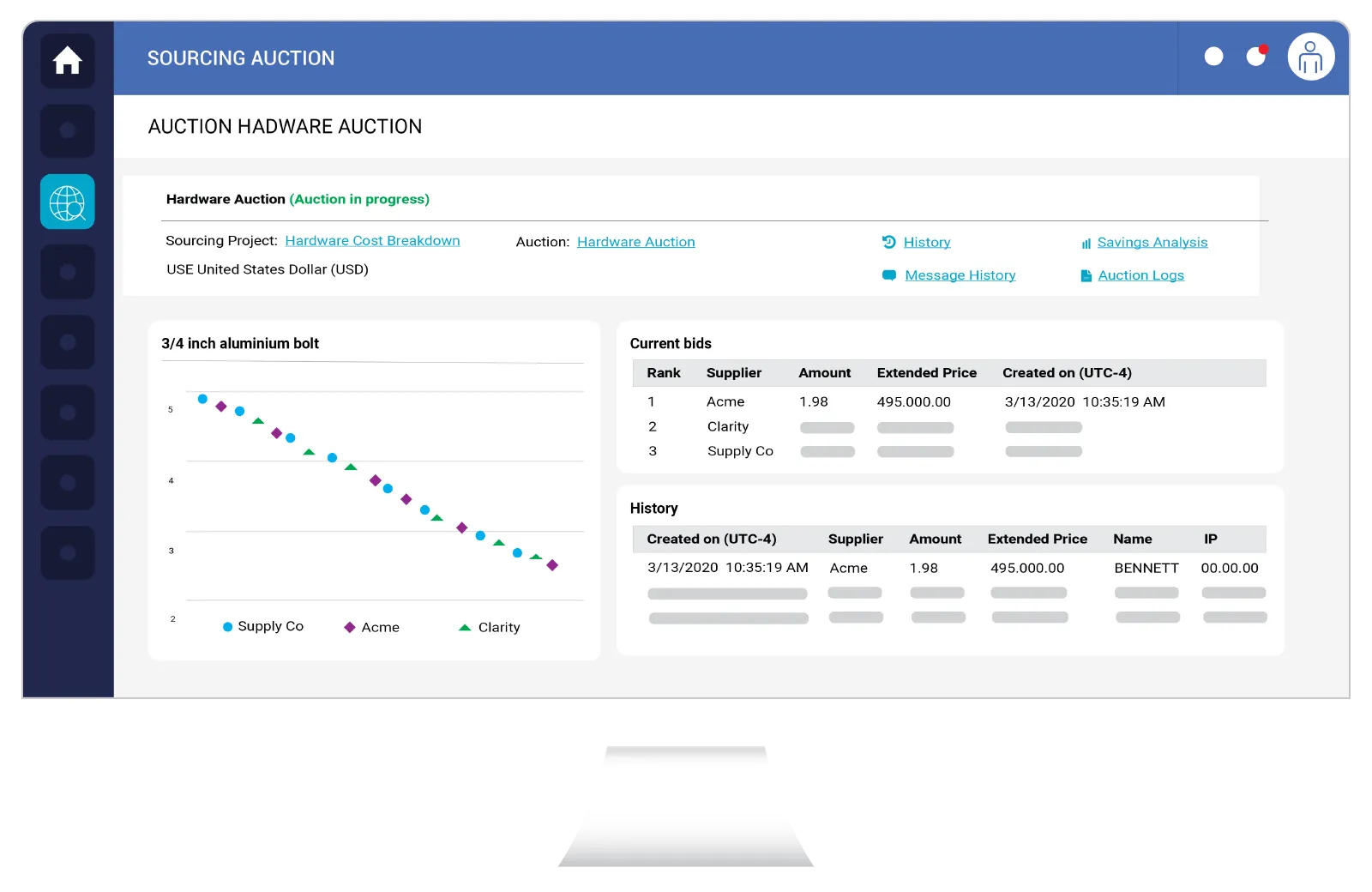Alternatives to Coupa Procurement
1. GEP SMART
+Pros
- Comprehensive AI capabilities
- Proven performance with enterprise-scale operations
- 92% spend classification accuracy versus 68% for manual processes
- Azure-native architecture and low-code customization engine (GEP QUANTUM)
-Cons
- Significant implementation complexity requiring 6-12 months and substantial resource commitment
- $500,000 minimum annual licensing fee
- System performance challenges during complex operations and ongoing customization requirements
One highlighted feature and why it's amazing
Comprehensive source-to-pay automation through AI-driven spend analytics, predictive supplier risk monitoring, and intelligent workflow orchestration.

Another highlighted feature of why it’s amazing
AI and automation capabilities extend beyond basic workflow automation to incorporate generative AI for guided purchasing and dynamic supplier recommendations based on sustainability, risk, and pricing factors.
2. Ivalua
+Pros
- Unified data model approach eliminates process fragmentation.
- Proven enterprise capability with documented 30% cycle time reduction.
- High customer retention rates indicate sustained satisfaction.
-Cons
- Implementation complexity typically requires 6-12 months and dedicated cross-functional teams.
- Annual licensing starting at approximately $150,000 limits access to enterprise customers.
- Data migration complexity affects deployment success.
One highlighted feature and why it's amazing
Automates routine procurement workflows while maintaining strategic human oversight for complex decisions.

Another highlighted feature of why it’s amazing
Focuses on spend analysis and classification, achieving meaningful improvements in spend visibility with documented 30% cycle time reduction in enterprise implementations.
3. Jaggaer
+Pros
- Comprehensive AI integration across source-to-pay workflows
- Proven enterprise capabilities with documented customer success
- Industry-specific AI features for retail and ecommerce
-Cons
- Substantial implementation requirements with 6-9 month deployment timelines
- High cost structure with enterprise licensing exceeding $100,000 annually
- Interface usability challenges including 'overwhelming search results' and 'complicated non-catalog PO creation'
One highlighted feature and why it's amazing
AI-powered contract analysis with generative AI that translates complex terms into plain language, accelerating review cycles and reducing legal complexity.

Another highlighted feature of why it’s amazing
JAI Co-pilot, an agentic AI platform that orchestrates complex procurement tasks like RFP creation and supplier evaluation.
Other Alternatives
Oracle Procurement Cloud
Procurify
SAP Ariba
Tradogram
How We Researched This Guide
About This Guide: This comprehensive analysis is based on extensive competitive intelligence and real-world implementation data from leading AI vendors. StayModern updates this guide quarterly to reflect market developments and vendor performance changes.
228+ verified sources per analysis including official documentation, customer reviews, analyst reports, and industry publications.
- • Vendor documentation & whitepapers
- • Customer testimonials & case studies
- • Third-party analyst assessments
- • Industry benchmarking reports
Standardized assessment framework across 8 key dimensions for objective comparison.
- • Technology capabilities & architecture
- • Market position & customer evidence
- • Implementation experience & support
- • Pricing value & competitive position
Research is refreshed every 90 days to capture market changes and new vendor capabilities.
- • New product releases & features
- • Market positioning changes
- • Customer feedback integration
- • Competitive landscape shifts
Every claim is source-linked with direct citations to original materials for verification.
- • Clickable citation links
- • Original source attribution
- • Date stamps for currency
- • Quality score validation
Analysis follows systematic research protocols with consistent evaluation frameworks.
- • Standardized assessment criteria
- • Multi-source verification process
- • Consistent evaluation methodology
- • Quality assurance protocols
Buyer-focused analysis with transparent methodology and factual accuracy commitment.
- • Objective comparative analysis
- • Transparent research methodology
- • Factual accuracy commitment
- • Continuous quality improvement
Quality Commitment: If you find any inaccuracies in our analysis on this page, please contact us at research@staymodern.ai. We're committed to maintaining the highest standards of research integrity and will investigate and correct any issues promptly.